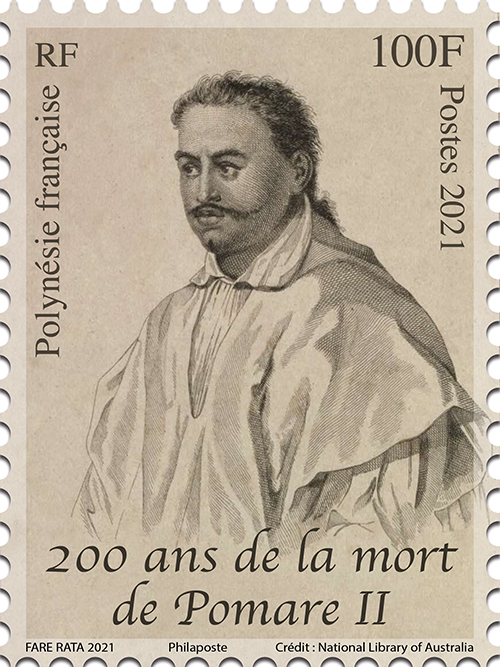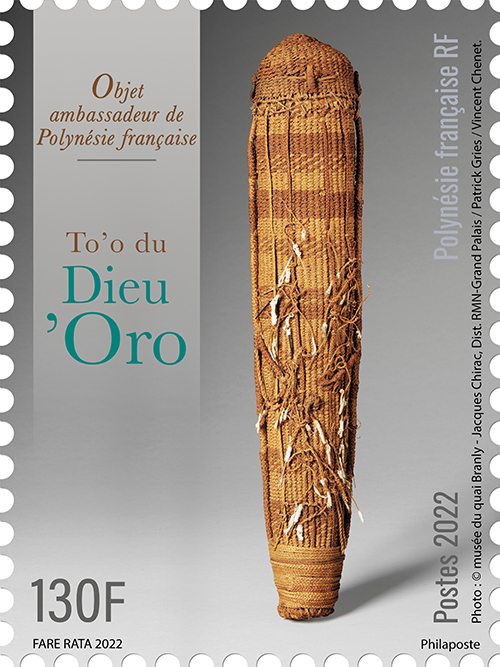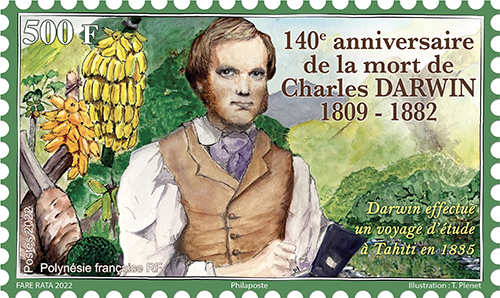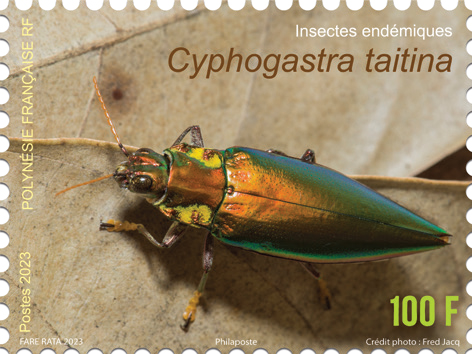200 ans de la mort de POMARE II
Tunuieaaiteatua POMARE, connu sous le nom Pomare II, était le fils de Pomare Ier, premier « roi » de Tahiti. Né vers 1782, il régna de 1791, année de son investiture comme arii (roi), jusqu’à sa mort en 1821.
Les débuts de son règne furent marqués par l’arrivée des missionnaires de la « London Missionary Society ». Débarquant à la pointe Vénus en mars 1797, ils furent bien accueillis par son père, tandis que lui-même ne cachait pas son hostilité. Pomare 1er mourut en 1803. Pomare II essaya de s’imposer à son tour arii rahi (grand roi) de Tahiti mais se heurta à la coalition des autres chefs de l’ile menée par Opuhara chef de Papara, mécontents de son comportement tyrannique. Après des batailles sanglantes, il dut quitter Tahiti en 1808 pour Moorea en 1808. Là, le missionnaire Henry Nott s’installa durablement dans son entourage. À partir de 1812, il fit publiquement profession de christianisme.
Par son mariage avec Teriitaria, fille du roi Tamatoa III de Raiatea, Pomare II créa des alliances avec les chefferies des îles Sous-Ie-Vent, lui permettant de revenir à Tahiti et de remporter la bataille décisive de Fe’i Pi en novembre 1815, dans la commune de Paea. Pomare II, enfin reconnu ari’i rahi de Tahiti, instaura une monarchie absolue et chrétienne. En 1817, il participa à l’impression de l’évangile de Luc. En 1819, il promulgua le premier code de lois, le Code Pomare, fortement inspiré par les missionnaires. Puis, le 16 juin, il reçut du pasteur Henry Nott le sacrement de baptême, devant des milliers de personnes qui ne tardèrent pas à se convertir. Le protestantisme devint la religion officielle. Ce code aux exigences austères allait bouleverser la tradition polynésienne, imposant le port des vêtements couvrant tout le corps, interdisant les danses et les chants profanes, les tatouages…
Les deux dernières années de sa vie furent marquées par ses fréquents séjours sur l’îlot de Motu-Uta, où était son cabinet de travail, devenu lieu de débauche sur fond d’alcoolisme. Atteint d’éléphantiasis, Il mourut d’hydropisie le 7 décembre 1821, à 39 ans. Apres sa mort, les missionnaires purent espérer pouvoir réaliser leur rêve d’une théocratie car l’héritier, son fils Pomare III, n’avait alors qu’un an…
Fare Rata, La Poste de Polynésie, souhaite rendre hommage à ce personnage dont la conversion au christianisme bouleversa la vie de la société polynésienne.
200 years since the death of Pomare II
Tunuieaaiteatua POMARE, known as Pomare II, was the son of Pomare I, the first «king» of Tahiti. Born around 1782, he reigned from 1791, the year of his investiture as arii (king), until his death in 1821.
His early reign was marked by the arrival of the missionaries of the London Missionary Society. Landing at Venus Point in March 1797, they were welcomed by his father, while he himself did not hide his hostility. Pomare I died in 1803. Pomare II tried to impose himself in his turn arii rahi (great king) of Tahiti but encountered opposition from the coalition of other leaders of the island, dissatisfied with his authoritarian behavior. After bloody battles, he had to leave Tahiti in 1808 for Moorea in 1808. There, the missionary Henry Nott settled permanently in his entourage. From 1812, he made a public profession of Christianity.
By marrying Teriitaria, daughter of King Tamatoa III of Raiatea, Pomare II created alliances with the chieftains of the Leeward Islands, allowing him to return to Tahiti and win the decisive battle of Fe’i Pi in november 1815, in the township of Paea.
Pomare II, finally recognized ari’i rahi (great king) of Tahiti, established an absolute and Christian monarchy. In 1817 he took part in the printing of the Gospel of Luke.
In 1819 he promulgated the first code of laws, the Pomare Code, strongly inspired by the missionaries. Then, on 16 June, he received the sacrament of baptism from Pastor Henry Nott, before thousands of people who were soon converted. Protestantism became the official religion.
This austere code would disrupt the Polynesian tradition, imposing the wearing of clothing covering the whole body, prohibiting dances and profane songs, tattoos…
The last two years of his life were marked by his frequent stays on the islet of Motu-Uta, where was his study, which became a place of debauchery against a background of alcoholism. Suffering from elephantiasis, he died of dropsy on December 7, 1821, at the age of 39.
Relieved by his death, the missionaries were able to hope to realize their dream of a theocracy because the heir, his son Pomare III, was only one year old…
Fare Rata, French Polynesia Post Office, wishes to pay tribute to this character whose conversion to Christianity changed the life of Polynesian society.





Avis
Il n’y a pas encore d’avis.